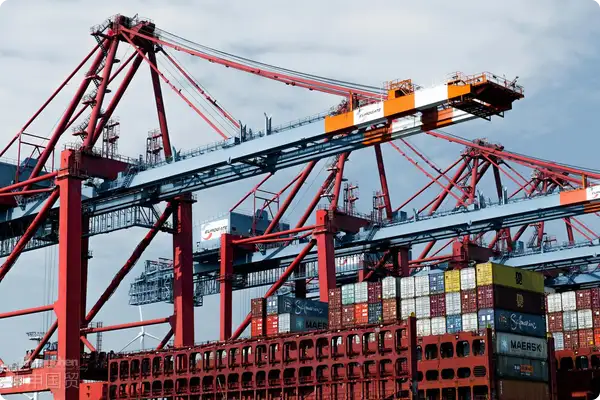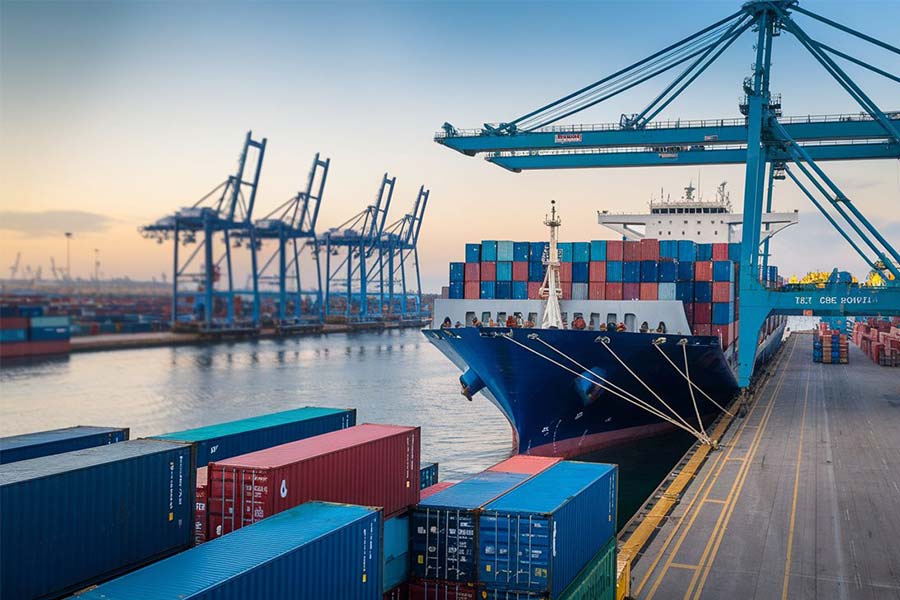- Shanghai Zhongshen International Trade Co., Ltd. - Two decades of trade agency expertise.
- Service Hotline: 139 1787 2118

Contents
ToggleJapanese Imported Bedding: Trade Overview and Response Strategies
On the grand stage of global trade, importing bedding products from Japan presents numerous opportunities, yet it also comes with a series of challenges. Whether it's the complex documentation process, meticulous logistics arrangements, or the unpredictable international trade landscape, all require a professional perspective and extensive experience to navigate effectively.
The Landscape of International Trade: Challenges and Opportunities Coexist
Currently, the international trade landscape is complex and ever-changing. On one hand, the rise of trade protectionism and frequent tariff adjustments undoubtedly increase cost risks for importing bedding products from Japan. For instance, certain countries may impose high tariff barriers on imported bedding to protect their domestic textile industries. On the other hand, the continuous advancement of regional trade agreements presents new opportunities. The implementation of agreements like the Regional Comprehensive Economic Partnership (RCEP) has created more favorable conditions for trade in the Southeast Asian market, reducing trade costs and simplifying procedures. Against this backdrop, importing bedding from Japan requires keen awareness of policy dynamics to fully leverage opportunities and mitigate risks.
Professional document handling capability
Document processing is a critical step in the import process. When importing bedding products from Japan, the first step is to prepare a commercial invoice, which must detail the description, quantity, and value of the goods, as it serves as a key basis for customs taxation and statistics. A packing list is also essential, as it clearly records the contents of each package, facilitating customs inspection and logistics distribution. Additionally, the bill of lading, as proof of ownership of the goods, must be accurate and timely. Our company has extensive experience in document processing, ensuring that all types of documents are accurate and submitted promptly. For example, when handling a previous shipment of high-end bedding imported from Japan, we communicated with the supplier in advance to clarify document requirements. Upon receiving the relevant documents, we conducted a thorough review and noticed a slight discrepancy in the product specifications on the invoice compared to the contract. We promptly contacted the supplier to make corrections, thereby avoiding delays and complications during the subsequent customs clearance process.
When dealing with business in the Russian market, documentation requirements may be more complex. Russian customs are extremely strict in reviewing import documentation, and in addition to the basic documents mentioned above, you may also needIt is recommended to verify through the following methods:Books, health certificates, etc., to ensure that the goods comply with relevant Russian standards and regulations. We are familiar with the documentation requirements of the Russian market and can assist clients in efficient processing to ensure smooth customs clearance of goods.
Precise logistics arrangements
The logistics process is directly related to whether goods can arrive at their destination on time and safely. When importing bedding from Japan, common transportation methods includeAir TransportationandMaritime TransportationIf the goods are urgently needed to be put on the market and the quantity is relatively small, air freight is a more suitable choice, as it is fast and can significantly reduce transportation time, but the cost is relatively high. If the quantity of goods is large and the time requirement is not particularly urgent, sea freight is more cost-effective.
In the shipping process, it is crucial to reasonably select sailing schedules and routes. For example, during the summer, the North Pacific may encounter severe weather such as typhoons, necessitating the avoidance of affected areas or the selection of appropriate sailing schedules to ensure cargo safety. Our company has established long-term partnerships with several well-known shipping companies, enabling us to develop optimal logistics solutions for clients by comprehensively considering factors such as cost, time, and safety based on their needs. When handling bedding products shipped from Japan to Southeast Asian markets, we select suitable destination ports by evaluating the operational efficiency and customs clearance speed of local ports. For instance, when shipping to Port Klang in Malaysia, we proactively assess port congestion and arrange sailing schedules accordingly to prevent prolonged cargo delays at the port.
For goods destined for the Russian market, due to the vast territory of Russia, inland transportation may require methods such as rail intermodal transport. We are familiar with Russia's railway transportation network and related regulations, enabling us to smoothly complete the inland transshipment of goods and ensure their final delivery to customers.
Southeast Asian Marketimport and exportProcess and Solution
- Import Process
- Pre - preparationBefore deciding to import bedding from Japan to Southeast Asia, it is essential to conduct market research to understand local market demand, consumer preferences, and competitor conditions. At the same time, sign a detailed procurement contract with Japanese suppliers, clearly specifying key terms such as product specifications, prices, delivery schedules, and payment methods.
- Goods shipped: The supplier arranges the transportation of goods as stipulated in the contract. During this process, we assist customers in tracking the status of the goods to ensure they are loaded onto the vessel or aircraft on schedule.
- Customs clearance phase: After the goods arrive at the destination port in Southeast Asia, they enter the customs clearance process. This requires the submission of accurate documents, including commercial invoices, packing lists, bills of lading, etc. Different countries may have additional specific requirements. For example, in Indonesia, importing bedding may require a certificate of origin to determine eligibility for the country's preferential tariff policies. We are familiar with the customs clearance policies and procedures of various Southeast Asian countries and can efficiently assist clients in completing the clearance process, avoiding delays caused by document discrepancies or unfamiliarity with policies.
- Goods Delivery: After customs clearance is completed, arrange for the transportation of goods from the port to the customer's designated location. This may involve inland transportation, warehousing, and other processes. We will provide a one-stop solution based on the customer's needs to ensure the safe and timely delivery of goods.
- Solutions
For the Southeast Asian market, we provide personalized solutions. For cost-sensitive customers, we optimize logistics plans—such as selecting suitable shipping companies and transportation routes—to secure more favorable freight rates and reduce logistics costs. Additionally, in terms of documentation processing, we communicate with clients in advance to prepare all required documents, ensuring smooth customs clearance and minimizing unnecessary port detention fees. For example, when handling a shipment of mid-to-low-end bedding products to Thailand, we selected a cost-effective sea freight solution based on the client's budget. By collaborating with a local freight forwarder in Thailand and familiarizing ourselves with Thai customs policies in advance, we successfully completed customs clearance and cargo delivery. This approach helped the client save costs and enhance their market competitiveness.
VTB in the Russian MarketFX Settlement AgencyAdvantages
When conducting trade with Russia, foreign exchange settlement is a crucial step. VTB (Russia's...foreign tradeVTB (Bank) holds a significant position in Russia's financial system. Conducting foreign exchange settlements through VTB offers numerous conveniences. Firstly, VTB maintains smooth data exchange with relevant departments such as Russian customs, which helps expedite the settlement process. In practice, once goods clear customs, VTB can quickly obtain the relevant information and promptly handle foreign exchange settlement procedures for enterprises. Secondly, VTB has extensive experience in trade financing. For enterprises importing bedding products from Japan to Russia, if they encounter liquidity needs, VTB can provide trade financing services to help address financial challenges. For instance, enterprises can apply for short-term loans from VTB using purchase contracts signed with Japanese suppliers and related shipping documents, utilizing the funds to pay for the goods and repaying the loans after the goods are sold. This flexible financing approach can effectively alleviate financial pressure on enterprises and facilitate the smooth progress of trade activities.
Product Certification Service Assistance
When importing bedding products from Japan, different markets have varying requirements for product certifications. In the Southeast Asian market, some countries may require bedding products to comply with local textile standards. For example, in Singapore, products must meet the relevant standards set by the Singapore Standards Institution (SSI). In Russia, products need to conform to the Russian National Standard (GOST). Although our company does not directly handle certification services, we have a professional team capable of accurately informing clients about the required certifications and assisting them in preparing the necessary documentation. We also facilitate communication with certification bodies. For instance, when assisting a client in importing a batch of children's bedding products from Japan to Russia, we promptly informed them of the need to obtain GOST-R certification. We helped the client organize technical documents, test reports, and other required materials, coordinated with the certification body, and monitored the certification progress. This ensured the client successfully obtained the certification, allowing the products to enter the Russian market in compliance with regulations.
In summary, whether facing the complex international trade landscape or navigating the intricate import-export procedures for importing bedding products from Japan,ZhongShen International TradeWith professional document processing and logistics arrangement capabilities, as well as tailored services for different markets, we are able to provide clients with comprehensive and high-quality foreign trade agency services, helping them achieve success in the international market.
Related Recommendations
? 2025. All Rights Reserved. Shanghai ICP No. 2023007705-2  PSB Record: Shanghai No.31011502009912
PSB Record: Shanghai No.31011502009912










